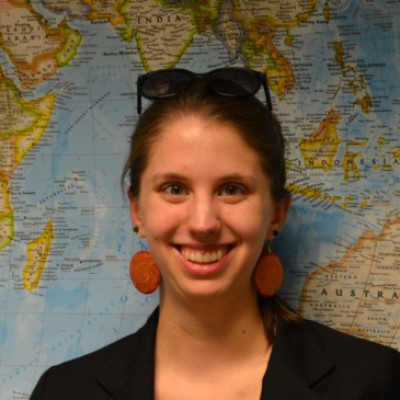Sessions / Applied Linguistics / Second Language Acquisition
Developing Multilingualism Through Immersion: The Importance of Motivation #3003
How can teachers motivate students to achieve a high level of proficiency in multiple languages? This presentation will describe the experiences of two Korean graduate students who developed multilingualism through language immersion. These students represent a group of seven participants who were systematically interviewed for a study on the role of motivation in achieving multilingualism for a research study by a graduate student.
The presentation will begin by describing the background research on motivation and immersion education, highlighting the work of Zoltán Dörnyei's L2 Motivational Self System. Most of the presentation will focus on the cases of the two Korean graduate students, who will describe how they became trilingual in Korean/Japanese/English and Korean/Spanish/English. They will identify the most important sources of motivation that contributed to their multilingualism, including self-monitoring, content-based instruction, social integration, and developmental factors related to age. The presentation will conclude with a diagram showing the most significant motivating factors, with suggestions for how teachers can use these findings.
“Did You Say Pragmatics?”: Advancing Instructional Design to Address Negative Transfer #2781
Ample research in the field of pragmatics has confirmed the effectiveness of explicit instruction. However, this body of knowledge has been largely limited to the study of intermediate second language learners. This narrow focus leaves teachers of beginner and advanced students with little guidance when it comes to the instructional design concerning pragmatic skills development in face-threatening scenarios. Based on a 2021 study of negative pragmatic transfer among Japanese university students, this presentation explores how the research into negative transfer and L2 proficiency can serve as a guide for teachers who are planning and conducting pragmatic instruction, such as refusals or requests. Grounded in extensive data and experience teaching Japanese English learners, the presenters will introduce their metapragmatic instructional approach and several classroom activities in order to illustrate how to teach pragmatically appropriate responses to learners at all levels of proficiency. Presentation takeaways will be applicable in global contexts.
English Language Ideology Reproduction and Revision by "Native" Speaking Teachers in South Korean Classrooms #2991
Since the 1970s, South Korean schools and universities have hired “native" speakers to aid with English education. Researchers have examined the results of this decision at the level of the classroom; however, little is known about the role these teachers play in English language ideology formation and reproduction among the citizens of South Korea. This paper fills this gap through an examination of the representation and valuation of the English language by “native" speaking teachers working in South Korea. Data from interviews with English language teachers, focus groups with "native" speaking English teachers, and classroom observations of classes taught by "native" speaking English teachers were analyzed using Wortham and Reyes’ (2015) discourse analytical approach. Results showed that teachers upheld and reproduced both local and global ideologies of English, by locating English as either internal or external to Korea, juxtaposing English with “modern Western” values, and neutralizing the status of English. These results shed light on teachers’ role in the reproduction of local and global English ideologies and the global spread of English.
Vocabulary Development and Intercultural Awareness Through Digital Storytelling in Primary Education #2664
There is today a rich body of literature about the affordances of using DST (Digital Storytelling) in education, but the research on its effectiveness for vocabulary development and intercultural awareness is scarce. This presentation aims to analyze the impact of DST on vocabulary development from an intercultural perspective among Primary Education children. This three-month research included 128 learners aged 6-8 from 24 different cultural backgrounds divided in a control group (CG), using three printed multicultural folktales, and an experimental group (EG), exposed to the digital version (DST) of the same stories. In this mixed method research quantitative and qualitative data were gathered through class activities (reading or watching) and a pre-post-delayed-test. The results revealed that DST can be effectively used to expand EFL vocabulary and intercultural awareness, but some statistical differences were observed in the post- and delayed tests depending on cultural background and home exposure to technology.
Fulfilling a Dream: Two South Korean Students in Japan #2792
TESOL has been criticized as “traditionally [giving] more attention to the process of [language] acquisition than to the flesh-and-blood individuals who are doing the learning” (Kramsch, 2009, p. 2). At times, TESOL has also been labeled as suffering from monolingual bias (May, 2013; Meier & Conteh, 2014). The current study aims to contribute to the research on flesh-and-blood learners' translingual, transnational identities. The participants are two South Korean female university students studying in Japan. They use English, Japanese, and Korean regularly and are learning other languages as well. Having also lived in English-speaking countries, the participants have a transnational identity, which results in unique perspectives on their university life in Japan. The presentation focuses on their experiences in the classroom in Japan. I investigate how the students’ investment in language learning (Norton, 1995, 2013) shapes their experience with education and language use in Japan as an Expanding Circle country.




